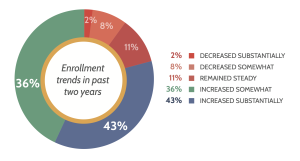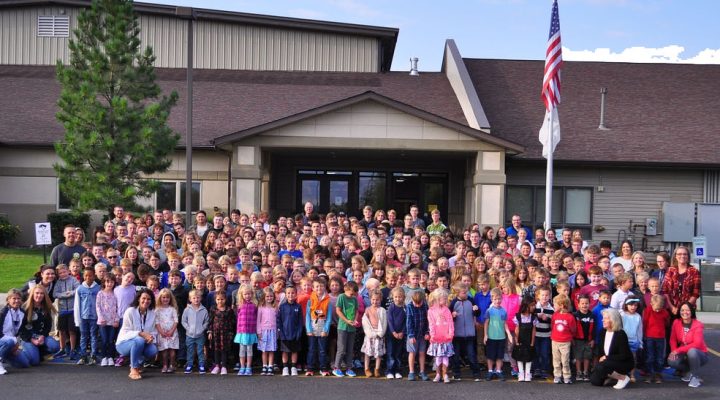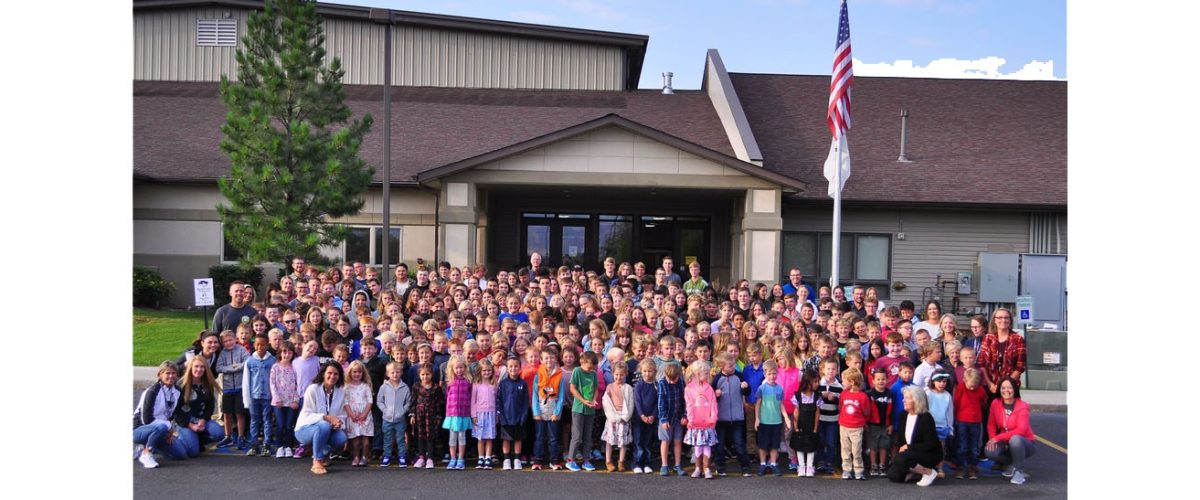The majority of private Christian schools in America have been growing in enrollment as conservative parents worried about COVID closures and worried about “moral and social issues,” according to a new national survey.
“Post-pandemic, eight out of 10 Christian school leaders report that they are seeing an increased demand for Christian education in their area, with more than half of those reporting a ‘substantial’ increase,” according to a summary provided by the consulting firm DickersonBakker. “This demand has translated into increased enrollment, with 79% of Christian leaders saying that their school has grown ‘somewhat’ (36%) or ‘significantly’ (43%).”
Further, among those private Christian schools not experiencing enrollment increases, 86% reported the primary reason is because interested families are not able to afford the cost of tuition.
 The survey highlights two contrasting realities: Private Christian schools, which tend to lean more conservative in theology and culture, are growing rapidly but are not especially good at raising money. And tuition is a barrier for some parents who desire a private education for their children.
The survey highlights two contrasting realities: Private Christian schools, which tend to lean more conservative in theology and culture, are growing rapidly but are not especially good at raising money. And tuition is a barrier for some parents who desire a private education for their children.
There has been a corresponding push for a diversion of public education funds to such private schools, with several key court cases recently opening the door more. Church-state separationists oppose such schemes as improper government funding of religion.
Regarding the cause of the surge in enrollment, the DickersonBakker summary says: “A convergence of cultural factors, from the remote learning that took place during the pandemic to moral and social concerns, is causing increased numbers of parents to consider alternative education for their children. Christian schools across the nation appear to be benefiting from this trend, with demand increasing and enrollment growing.”
Since 2020, public schools have become battlegrounds between politically and theologically conservative parents and school boards not only over pandemic health precautions but also over library books, gender inclusion and how American history about race and slavery is taught. Conservative critics of public education have lumped all these social concerns under the banner of Critical Race Theory.
The boom in private Christian school enrollment has been called the “second great awakening” for the private school movement. The first boom occurred in the 1950s and ’60s as a response of white evangelical parents to school integration and busing.
Other national surveys have found documented or anecdotal evidence of a current growth trend in private Christian K-12 schools, as well. Among those is a survey by the libertarian Cato Institute.
The growth in enrollment has brought new challenges to private schools, specifically related to funding, facilities and teacher recruitment.
Seven of the top 10 challenges identified by Christian school leaders in the latest survey are related to financial sustainability.
“Three out of every four Christian school leaders say they’re struggling to hire qualified staff, a third say they don’t have enough room on campus for more students, and yet only three out of 10 schools have increased their fundraising activities,” the survey summary said.
Related articles:
Why is there a boom in enrollment at private Christian schools? Here’s one critical theory: Race | Analysis by Rodney Kennedy
Racism and the evolution of Protestant support for private education | Analysis by Andrew Gardner


